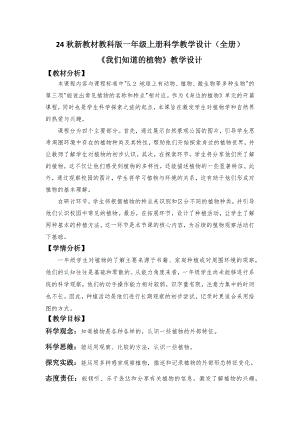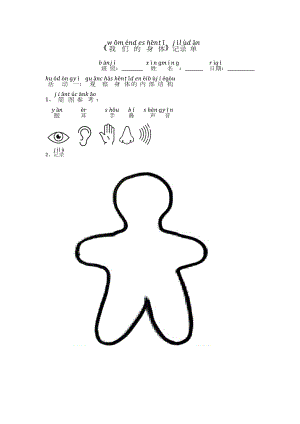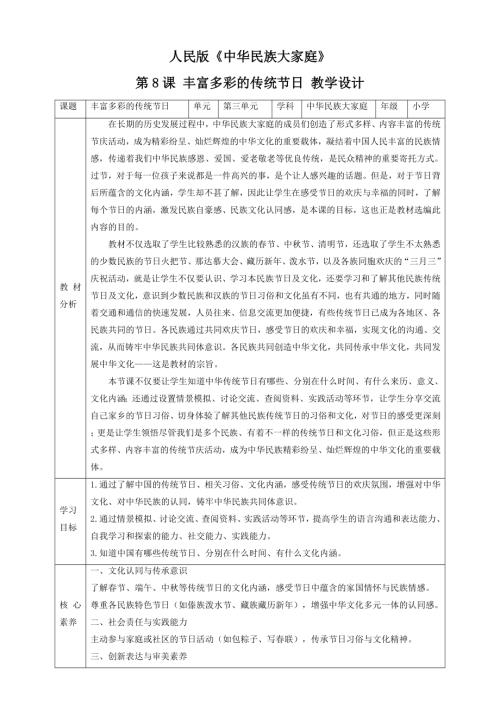 北京課改版六年級(jí)上冊(cè)英語(yǔ)教案 Unit Three Lesson 9.docx
北京課改版六年級(jí)上冊(cè)英語(yǔ)教案 Unit Three Lesson 9.docx
UNIT THREE I FLEW TO HANGZHOU一、教材背景和學(xué)情分析(一)本單元教學(xué)內(nèi)容:本單元是有關(guān)交通方式的話(huà)題。主要句式:由when how who 引導(dǎo)的特殊疑問(wèn)句,如:詢(xún)問(wèn)對(duì)方在過(guò)去的某個(gè)時(shí)間是何時(shí)回來(lái)的用語(yǔ)When did you come back?對(duì)方在過(guò)去的某個(gè)時(shí)間如何到達(dá)某個(gè)地點(diǎn)How did you get to the museum last Saturday?詢(xún)問(wèn)誰(shuí)發(fā)明了什么Who invented all of these? 涉及的語(yǔ)法知識(shí)為一般過(guò)去式。交通方式也是本單元的復(fù)習(xí)知識(shí)點(diǎn)。(二)知識(shí)點(diǎn)的上位分析:學(xué)生在四年級(jí)下半學(xué)期和本冊(cè)書(shū)前兩個(gè)單元已經(jīng)學(xué)過(guò)、接觸了過(guò)去式,如Where did he go? He went to my . Whats happened to? Im sorry I broke. 而且前兩單元的語(yǔ)法知識(shí)點(diǎn)也是一般過(guò)去式。另外,學(xué)生在二年級(jí)就接觸了相關(guān)簡(jiǎn)單的交通方式。基于以上分析,我把本單元重難點(diǎn)定位在:教學(xué)重點(diǎn):when how who what 引導(dǎo)的特殊疑問(wèn)句以及一般過(guò)去式的用法。 教學(xué)難點(diǎn): fly過(guò)去式flew, take過(guò)去式took, come過(guò)去式came, ride過(guò)去式rode等不規(guī)則動(dòng)詞的一般過(guò)去式的形式。表示過(guò)去時(shí)間狀語(yǔ)的表達(dá)如:early this morning, late yesterday afternoon, early last Sunday morning等.(三)各單元、各課知識(shí)點(diǎn)之間的聯(lián)系、整合、鋪墊與延伸本單元涉及的語(yǔ)法點(diǎn)和一二單元一樣,都是一般過(guò)去式。 本單元在Lesson9,Lesson10和Lesson11所涉及的都是一般過(guò)去時(shí)的用法。三個(gè)課也都涉及了交通方式的用法。 (四)本單元知識(shí)點(diǎn)、考點(diǎn)梳理1)句式:功能句:詢(xún)問(wèn)對(duì)方在過(guò)去何時(shí)做了某事When did you do(動(dòng)詞原型) sth? 對(duì)方在過(guò)去的某個(gè)時(shí)間如何到達(dá)某個(gè)地點(diǎn)How did you get(動(dòng)詞原型)to ?的固定應(yīng)用,以及詢(xún)問(wèn)誰(shuí)發(fā)明了某物Who invented?的正確運(yùn)用。來(lái)源:學(xué)+科+網(wǎng)Z+X+X+K重點(diǎn)句:一般疑問(wèn)句Was it crowded on the bus? 及其肯定和否定答語(yǔ)Yes, it was./No, it wasnt.一般疑問(wèn)句Did you enjoy your visit?及其肯定和否定答語(yǔ)Yes, I did./No, I didnt.2)語(yǔ)法: 動(dòng)詞一般過(guò)去式的正確使用;由when how who 引導(dǎo)的特殊疑問(wèn)句的正確運(yùn)用;由was, did引導(dǎo)的一般疑問(wèn)句的問(wèn)與答的正確運(yùn)用:以及表達(dá)過(guò)去時(shí)的時(shí)間狀語(yǔ)的正確表述,如:last weekend, early this morning, late yesterday afternoon, early last Sunday morning, last summer vacation.3)詞匯:名詞:trip, lake, foot, silk, festival, airport, airplane, invention, telephone, light,來(lái)源:學(xué)。科。網(wǎng)Z。X。X。K形容詞:large, crowded, smart, easy, 副詞:early, along, around, 動(dòng)詞:invent, 詞組: walk along, walk around, fly to, come back, line up等。 4)語(yǔ)音:強(qiáng)化字母組合ar, oo, air, or 在單詞中的發(fā)音。 二、本單元具體教學(xué)目標(biāo)1能流利地朗讀課文,表演對(duì)話(huà)。能夠看圖說(shuō)話(huà)在語(yǔ)境中表達(dá)。2學(xué)生能在實(shí)際語(yǔ)境下使用恰當(dāng)語(yǔ)言靈活表達(dá):1)學(xué)生能在恰當(dāng)情景中詢(xún)問(wèn)對(duì)方在過(guò)去什么時(shí)間做了什么When did you?及其答語(yǔ)的應(yīng)用。2)學(xué)生能在恰當(dāng)情景中詢(xún)問(wèn)對(duì)方在過(guò)去的某個(gè)時(shí)間點(diǎn)如何到達(dá)了某地 How did get to?及其答語(yǔ)的應(yīng)用。3)學(xué)生能夠在相應(yīng)的情境中問(wèn)答誰(shuí)發(fā)明了什么Who invented?及其答語(yǔ)。3能聽(tīng)、說(shuō)、讀、寫(xiě)本單元的19個(gè)單詞:early, trip, along, lake, large, around, foot, silk, crowded, line up, airport, festival, airplane, invent, smart, invention, easy, telephone, light4能借助錄音讀懂書(shū)上story time中的故事,完成課后問(wèn)題。課時(shí)安排UNIT THREE I FLEW TO HANGZHOULesson 9 第一課時(shí)一、教學(xué)內(nèi)容:主題課文: Hi, Mike. What did you do last weekend?I flew to Hangzhou with my parents.Really? When did you come back?We came back early this morning.How was the trip?Great! We walked along the West Lake. Its such a large lake. We couldnt walk around it on foot. My mom bought a lot of silk dresses.功能句型:When did you come back?We came back early this morning.詞匯:early, trip, along, lake, large, around, foot, silk二、教學(xué)目標(biāo)(一)知識(shí)與技能目標(biāo)1.能夠正確地理解、朗讀課文2.能聽(tīng)懂會(huì)說(shuō)由疑問(wèn)代詞when引導(dǎo)的特殊疑問(wèn)句的過(guò)去時(shí) When did you come back?及其過(guò)去時(shí)的答語(yǔ)We came back early this morning. 3.能聽(tīng)、說(shuō)、讀、寫(xiě)early, trip, along, lake, large, around, foot, silk等四會(huì)單詞(二)過(guò)程與方法1.通過(guò)聽(tīng)錄音,跟讀錄音,模仿對(duì)話(huà)表演等來(lái)使學(xué)生掌握課文的正確讀音.2.創(chuàng)設(shè)貼切的真實(shí)情景,幫助學(xué)生理解所學(xué)功能句,然后通過(guò)反復(fù)練習(xí)、實(shí)踐來(lái)使學(xué)生掌握功能句.3.在恰當(dāng)?shù)恼Z(yǔ)境中,讓學(xué)生體驗(yàn)、感知、運(yùn)用后掌握所學(xué)詞匯.來(lái)源:學(xué)科網(wǎng)ZXXK(三)情感態(tài)度價(jià)值觀1.學(xué)生喜愛(ài)乘坐不同的交通工具外出和旅游三、教學(xué)重難點(diǎn)(一)重點(diǎn)1.在恰當(dāng)情景下理解和運(yùn)用When did you come back?We came back early this morning.2.能朗讀課文(二)難點(diǎn)1. 掌握功能句并在實(shí)際情景中作適當(dāng)?shù)倪\(yùn)用。 2正確運(yùn)用重點(diǎn)句四、教具準(zhǔn)備幻燈片、課文對(duì)話(huà)錄音、與課文情景有關(guān)的圖片、單詞卡片五、教學(xué)過(guò)程(一) Warming-up活動(dòng)一Free talk活動(dòng)目標(biāo):復(fù)習(xí),鞏固特殊疑問(wèn)代詞what, when, how, where.實(shí)施方法及師生預(yù)設(shè)語(yǔ)言:T: Did you enjoy your National Day?Can you tell us something about your holiday?Arranged the assignment to students before the lesson, give them enough time to prepare.Let them write according to the order of what, where, when, how.1. Where did you go?2. What did you do this National Day?3. when did you come back?4. How was your trip?5. Something of your trip.(二)Presentation and practice活動(dòng)一 聽(tīng)一聽(tīng),答一答活動(dòng)目標(biāo):幫助學(xué)生感知,理解課文內(nèi)容實(shí)施方法及師生預(yù)設(shè)語(yǔ)言:1. Listen to the dialogueT: Lets listen to something about Mikes trip.2. Listen and answerListen again and answer the questions about the dialogue. The content of the questions is the same as students homework.(1) What did Mike do last weekend?(2) Where did Mike go last weekend?(3) When did Mike come back?(4) How was Mikes trip?(5) Something about his trip.3. Stress the “something of his trip”.T: This part is too long. Its hard for us to understand it.Who can help me?Show the sentences of the part, let students rearrange them.(1) We visited West Lake.(2) We wanted to walk along the West Lake and saw the sights of the West Lake. (3) But its such a large lake.(4) So we couldnt walk around it on foot. We had to ride bikes.(5) And my mom bought a lot of silk dresses.4. Read the introduction of the part5. Read the part together.設(shè)計(jì)意圖:幫助學(xué)生理解、記憶課文。 活動(dòng)二 practice活動(dòng)目標(biāo): 在實(shí)踐運(yùn)用中掌握課文的朗讀。實(shí)施方法及師生預(yù)設(shè)語(yǔ)言:1. Drill the dialogue(1) Play the tape and imitate(2) Have the students read the dialogue(3) Practice in groups(4) Have them read or act(5) Have them make a new dialogue(6) Have some groups act the new dialogues活動(dòng)三: 強(qiáng)化課文內(nèi)容活動(dòng)目標(biāo):把課文作為聽(tīng)力材料,提高學(xué)生的聽(tīng)、寫(xiě)能力。并幫助學(xué)生進(jìn)一步理解所學(xué)課文。實(shí)施方法及師生預(yù)設(shè)語(yǔ)言:聽(tīng)課文一遍,注意所缺單詞的發(fā)音聽(tīng)課文第二遍,補(bǔ)齊課文對(duì)話(huà)逐句播放課文對(duì)話(huà)錄音,學(xué)生逐句跟讀課文錄音,模仿錄音中的語(yǔ)音語(yǔ)調(diào)。Role play 分角色表演課文對(duì)話(huà),對(duì)表演對(duì)話(huà)好的學(xué)生給予一顆星或兩顆星的獎(jiǎng)勵(lì),鼓勵(lì)學(xué)生積極表演。(三)Production活動(dòng)一 根據(jù)所給內(nèi)容創(chuàng)編新對(duì)話(huà)活動(dòng)目標(biāo): 學(xué)生能夠?qū)⑺鶎W(xué)知識(shí)在生活中運(yùn)用實(shí)施方法及師生預(yù)設(shè)語(yǔ)言:What did you do weekend?I with my .When did you ?We.How was.設(shè)計(jì)意圖:幫助學(xué)生能夠靈活運(yùn)用所學(xué)知識(shí),達(dá)到學(xué)以致用。(四)學(xué)習(xí)效果評(píng)價(jià)(檢測(cè)題)檢測(cè)目標(biāo)和意圖:檢測(cè)學(xué)生對(duì)本課教學(xué)目標(biāo)的達(dá)成度檢測(cè)題:選擇。( ) 1. - What you do last weekend?- I to GuiLing with my friends.A. did, flew B. do, fly C. did, fly( ) 2. - did you come back?- We came back this morning.A. What B. Where C. When( ) 3. - How your trip?- Great! I enjoyed it. How about yours?A. was B. is C. are選詞填空。around along foot large trip1. -Excuse me! How can I get to the post office?-Walk the street, you wont miss it.2. He is looking and trying to find his brother.3. Its not so far. You can get there on .4. Its such a lake.5. -Do you want to have a with me?-Yes, Id like to.(五)Homework1. Write and recite the new words.2. Listen and read the text 3 times.六、板書(shū)設(shè)計(jì):Lesson9Where What When How 七、課后反思Lesson 9 第二課時(shí)一、 教學(xué)內(nèi)容Lets practice: When did.?及其答語(yǔ)。詞匯: early, trip, along, lake, large, around, foot, silkListen and choose: Tick or crossRead and writeStory time二、 教學(xué)目標(biāo):(一) 知識(shí)與技能目標(biāo):1. 能朗讀課文、表演對(duì)話(huà)。2. 能在各種語(yǔ)境中就由疑問(wèn)代詞when引導(dǎo)的特殊疑問(wèn)句的過(guò)去時(shí) When did .及其答語(yǔ)進(jìn)行替換練習(xí)。3. 能借助錄音讀懂書(shū)上story time中的故事,完成課后問(wèn)題。(二) 過(guò)程與方法:1. 通過(guò)跟讀錄音、合作學(xué)習(xí)等途徑幫助學(xué)生掌握課文內(nèi)容。2. 通過(guò)合作學(xué)習(xí)、小組操練等途徑來(lái)使學(xué)生掌握功能句的替換練習(xí)。3. 通過(guò)觀察圖片、根據(jù)重點(diǎn)詞預(yù)測(cè)句子含義來(lái)完成故事下的問(wèn)題。(三)情感態(tài)度價(jià)值觀:1. 通過(guò)本課語(yǔ)言知識(shí)的學(xué)習(xí),學(xué)生能熟悉身邊的人所做的事情,并能經(jīng)常做到關(guān)心他人。三、教學(xué)重難點(diǎn):(一)重點(diǎn): 1. 能在恰當(dāng)?shù)厍榫熬捅菊n功能句進(jìn)行替換練習(xí)。2. 能讀懂故事并完成相應(yīng)的練習(xí)。(二)難點(diǎn):1. 掌握動(dòng)詞drive, walk, take, ride等動(dòng)詞的過(guò)去式。四、教具準(zhǔn)備:幻燈片、錄音、短語(yǔ)卡片,相關(guān)場(chǎng)所圖片五、教學(xué)過(guò)程:(一)Warming up活動(dòng)一:聽(tīng)一聽(tīng),演一演活動(dòng)目標(biāo):通過(guò)復(fù)習(xí),幫助學(xué)生進(jìn)一步強(qiáng)化、鞏固上一課時(shí)所學(xué)內(nèi)容。實(shí)施方法及師生預(yù)設(shè)語(yǔ)言:教師播放課文錄音,T: Listen carefully. 學(xué)生聽(tīng)錄音。然后請(qǐng)學(xué)生開(kāi)展Role play 分角色表演課文對(duì)話(huà)設(shè)計(jì)意圖:對(duì)不同層次的學(xué)生進(jìn)行反饋,了解學(xué)生對(duì)上一課時(shí)教學(xué)內(nèi)容的掌握情況。(二)Presentation and practice 活動(dòng)一:Learn the new knowledge.活動(dòng)目標(biāo):掌握動(dòng)詞drive, walk, take, ride等動(dòng)詞的過(guò)去式,并運(yùn)用到功能句當(dāng)中。實(shí)施方法及師生預(yù)設(shè)語(yǔ)言:Show the pictures in order, let students use them to make short dialogues.1) Show drive and drove to students first and lead to read themStudents make dialogue- When did you drive to Xiangshan?- We drove to Xiangshan late yesterday afternoon.2) Show walk and walked to students first and lead to read themStudents make dialogue- When did you walk to Beihai.- We walked to Beihai early last Sunday morning.3) Show take and took to students first and lead to read themStudents make dialogue- When did you take the train to Tianjin?- We took the train to Tianjin last weekend.4) Show ride and rode to students first and lead to read themStudents make dialogue- When did you ride a horse on the farm?- We rode a horse on the farm last summer vacation.活動(dòng)二:Listen and choose: Tick or cross活動(dòng)目標(biāo):提高學(xué)生的聽(tīng)的能力實(shí)施方法及師生預(yù)設(shè)語(yǔ)言:(1) Let students read the sentences. (2) Circle the key points they should take care.(3) Have the students read the sentences(4) Listen and choose.(5) Check the answers活動(dòng)三: Read and write活動(dòng)目標(biāo):幫助學(xué)生再次鞏固所學(xué)四會(huì)詞以及其在恰當(dāng)情景中的運(yùn)用實(shí)施方法及師生預(yù)設(shè)語(yǔ)言:1.先請(qǐng)學(xué)生讀對(duì)話(huà),預(yù)測(cè)空缺處學(xué)要填寫(xiě)的單詞 2. 與自己的伙伴討論空缺的地方填寫(xiě)哪個(gè)單詞最合適3. 請(qǐng)學(xué)生說(shuō)出自己填寫(xiě)的單詞,并翻譯整句話(huà)。設(shè)計(jì)意圖:幫助學(xué)生進(jìn)一步強(qiáng)化early, trip, silk, along, large, foot四會(huì)單詞的總合運(yùn)用。活動(dòng)四:讀一讀,做一做活動(dòng)目標(biāo):把故事做為閱讀材料,利用故事的趣味性,激發(fā)學(xué)生讀的興趣,提高學(xué)生的閱讀能力實(shí)施方法及師生預(yù)設(shè)語(yǔ)言:教師先請(qǐng)學(xué)生觀察故事圖片,揣摩故事所表達(dá)的意思。請(qǐng)學(xué)生讀故事,畫(huà)出生單詞和詞組。小組討論生單詞和詞組。教師訂正生詞和詞組的意思。請(qǐng)學(xué)生完成故事下問(wèn)題。教師訂正答案。播放錄音,請(qǐng)學(xué)生模仿錄音中的語(yǔ)音,語(yǔ)調(diào)跟讀故事。(三)Production活動(dòng)一:Show more phrases to practice the sentences活動(dòng)目標(biāo): 將所學(xué)知識(shí)達(dá)到學(xué)以致用的目的。實(shí)施方法及師生預(yù)設(shè)語(yǔ)言:1. go to school- When did you go to school?- I went to school at .2. have dinner- When did you have dinner?- I had dinner at .3. see the film- When did you see the film?- I saw the film .4. walk the dog- When did you walk the dog?來(lái)源:學(xué)科網(wǎng)ZXXK- I walked the dog .5. buy these books- When did you buy these books?- I bought these books .(四)學(xué)習(xí)效果評(píng)價(jià)(檢測(cè)題)檢測(cè)目標(biāo)和意圖:檢測(cè)題:選擇。( ) 1. - Did you the train to Beijing?- No, I went to there by air.A. take B. took B. takes( ) 2. Every day, my father to work. Its very convenient.A. drive B. drove C. drives( ) 3. I like horses. A. riding B. rode C. rides( ) 4. My house is close to school. So I to school from Monday to Friday.A. walked B. walk B. walks( ) 5. - You should have a good rest. So you must go to bed .- I see, mom.A. early B. late C. lately來(lái)源:學(xué),科,網(wǎng)(五) Homework1. Write and recite the new words2. Write and recite the important sentences.六、板書(shū)設(shè)計(jì)Lesson 9When did you ?I walked the dog/ had dinner/ saw the film at .drive- walk- take- ride- go- have- see- buy- 七、課后反思
- 關(guān) 鍵 詞:
- 北京課改版六年級(jí)上冊(cè)英語(yǔ)教案 Unit Three Lesson 北京 改版 六年級(jí) 上冊(cè) 英語(yǔ)教案
 叮當(dāng)云教育所有資源均是用戶(hù)自行上傳分享,僅供網(wǎng)友學(xué)習(xí)交流,未經(jīng)上傳用戶(hù)書(shū)面授權(quán),請(qǐng)勿作他用。
叮當(dāng)云教育所有資源均是用戶(hù)自行上傳分享,僅供網(wǎng)友學(xué)習(xí)交流,未經(jīng)上傳用戶(hù)書(shū)面授權(quán),請(qǐng)勿作他用。 關(guān)于本文
本文標(biāo)題:北京課改版六年級(jí)上冊(cè)英語(yǔ)教案 Unit Three Lesson 9.docx
鏈接地址:http://www.huoxuba.com/p-26364.html
鏈接地址:http://www.huoxuba.com/p-26364.html
相關(guān)資源
 北京課改版小學(xué)英語(yǔ)六年級(jí)上冊(cè)課文+單詞mp3(全冊(cè)).rar
北京課改版小學(xué)英語(yǔ)六年級(jí)上冊(cè)課文+單詞mp3(全冊(cè)).rar  北京課改版五年級(jí)上冊(cè)英語(yǔ)課文音頻mp3全冊(cè).rar
北京課改版五年級(jí)上冊(cè)英語(yǔ)課文音頻mp3全冊(cè).rar  北京課改版五年級(jí)上冊(cè)英語(yǔ)Lesson002課文朗讀音頻.mp3
北京課改版五年級(jí)上冊(cè)英語(yǔ)Lesson002課文朗讀音頻.mp3  北京課改版五年級(jí)上冊(cè)英語(yǔ)Lesson020課文朗讀音頻.mp3
北京課改版五年級(jí)上冊(cè)英語(yǔ)Lesson020課文朗讀音頻.mp3  北京課改版五年級(jí)上冊(cè)英語(yǔ)Lesson010課文朗讀音頻.mp3
北京課改版五年級(jí)上冊(cè)英語(yǔ)Lesson010課文朗讀音頻.mp3  北京課改版五年級(jí)上冊(cè)英語(yǔ)Lesson019課文朗讀音頻.mp3
北京課改版五年級(jí)上冊(cè)英語(yǔ)Lesson019課文朗讀音頻.mp3  北京課改版五年級(jí)上冊(cè)英語(yǔ)Lesson009課文朗讀音頻.mp3
北京課改版五年級(jí)上冊(cè)英語(yǔ)Lesson009課文朗讀音頻.mp3  北京課改版五年級(jí)上冊(cè)英語(yǔ)Lesson013課文朗讀音頻.mp3
北京課改版五年級(jí)上冊(cè)英語(yǔ)Lesson013課文朗讀音頻.mp3  北京課改版五年級(jí)上冊(cè)英語(yǔ)Lesson003課文朗讀音頻.mp3
北京課改版五年級(jí)上冊(cè)英語(yǔ)Lesson003課文朗讀音頻.mp3  北京課改版五年級(jí)上冊(cè)英語(yǔ)Lesson017課文朗讀音頻.mp3
北京課改版五年級(jí)上冊(cè)英語(yǔ)Lesson017課文朗讀音頻.mp3 


 24新教材大象版一年級(jí)上冊(cè)科學(xué)1 前后左右 課件.pptx
24新教材大象版一年級(jí)上冊(cè)科學(xué)1 前后左右 課件.pptx  24新教材大象版一年級(jí)上冊(cè)科學(xué)2 常見(jiàn)的動(dòng)物 課件.pptx
24新教材大象版一年級(jí)上冊(cè)科學(xué)2 常見(jiàn)的動(dòng)物 課件.pptx  24新教材大象版一年級(jí)上冊(cè)科學(xué)3 我喜歡的動(dòng)物 課件.pptx
24新教材大象版一年級(jí)上冊(cè)科學(xué)3 我喜歡的動(dòng)物 課件.pptx  24新教材大象版一年級(jí)上冊(cè)科學(xué)體驗(yàn)單元《畫(huà)螞蟻》 課件.pptx
24新教材大象版一年級(jí)上冊(cè)科學(xué)體驗(yàn)單元《畫(huà)螞蟻》 課件.pptx  24新教材大象版一年級(jí)上冊(cè)科學(xué)2 感官的本領(lǐng) 課件.pptx
24新教材大象版一年級(jí)上冊(cè)科學(xué)2 感官的本領(lǐng) 課件.pptx  24新教材大象版一年級(jí)上冊(cè)科學(xué)1 辨別真假水果 課件.pptx
24新教材大象版一年級(jí)上冊(cè)科學(xué)1 辨別真假水果 課件.pptx  24新教材大象版一年級(jí)上冊(cè)科學(xué)3 水果分享會(huì) 課件.pptx
24新教材大象版一年級(jí)上冊(cè)科學(xué)3 水果分享會(huì) 課件.pptx  24新教材大象版一年級(jí)上冊(cè)科學(xué)反思單元《竺可楨的觀察日記》 課件.pptx
24新教材大象版一年級(jí)上冊(cè)科學(xué)反思單元《竺可楨的觀察日記》 課件.pptx  24新教材大象版一年級(jí)上冊(cè)科學(xué)2 月亮“變臉”課件.pptx
24新教材大象版一年級(jí)上冊(cè)科學(xué)2 月亮“變臉”課件.pptx  24新教材大象版一年級(jí)上冊(cè)科學(xué)1 月亮什么樣 課件.pptx
24新教材大象版一年級(jí)上冊(cè)科學(xué)1 月亮什么樣 課件.pptx  24新教材大象版一年級(jí)上冊(cè)科學(xué)1 觀察兔子 課件.pptx
24新教材大象版一年級(jí)上冊(cè)科學(xué)1 觀察兔子 課件.pptx  24新教材大象版一年級(jí)上冊(cè)科學(xué)3 白天與夜晚 課件.pptx
24新教材大象版一年級(jí)上冊(cè)科學(xué)3 白天與夜晚 課件.pptx  24新教材大象版一年級(jí)上冊(cè)科學(xué)3 太陽(yáng)的位置變化 課件.pptx
24新教材大象版一年級(jí)上冊(cè)科學(xué)3 太陽(yáng)的位置變化 課件.pptx  24新教材大象版一年級(jí)上冊(cè)科學(xué)2 東南西北 課件.pptx
24新教材大象版一年級(jí)上冊(cè)科學(xué)2 東南西北 課件.pptx  24秋新教材教科版一年級(jí)上冊(cè)科學(xué)教學(xué)設(shè)計(jì)(全冊(cè)教案總61頁(yè)).docx
24秋新教材教科版一年級(jí)上冊(cè)科學(xué)教學(xué)設(shè)計(jì)(全冊(cè)教案總61頁(yè)).docx  24秋新教材教科版一年級(jí)上冊(cè)科學(xué)2.1《我們的身體》實(shí)驗(yàn)記錄單.docx
24秋新教材教科版一年級(jí)上冊(cè)科學(xué)2.1《我們的身體》實(shí)驗(yàn)記錄單.docx  人民版《中華民族大家庭》第4課我們都是中國(guó)公民 課件.pptx
人民版《中華民族大家庭》第4課我們都是中國(guó)公民 課件.pptx  人民版《中華民族大家庭》第6課 共同建設(shè)美好家園 課件.pptx
人民版《中華民族大家庭》第6課 共同建設(shè)美好家園 課件.pptx  人民版《中華民族大家庭》第8課 豐富多彩的傳統(tǒng)節(jié)日 課件.pptx
人民版《中華民族大家庭》第8課 豐富多彩的傳統(tǒng)節(jié)日 課件.pptx  人民版《中華民族大家庭》第7課 中華民族的語(yǔ)言文字 課件.pptx
人民版《中華民族大家庭》第7課 中華民族的語(yǔ)言文字 課件.pptx  人民版《中華民族大家庭》第4課我們都是中國(guó)公民 教案 核心素養(yǎng).doc
人民版《中華民族大家庭》第4課我們都是中國(guó)公民 教案 核心素養(yǎng).doc  人民版《中華民族大家庭》第5課 美麗河山我們的家 課件.pptx
人民版《中華民族大家庭》第5課 美麗河山我們的家 課件.pptx  人民版《中華民族大家庭》第8課 豐富多彩的傳統(tǒng)節(jié)日 教案 核心素養(yǎng).doc
人民版《中華民族大家庭》第8課 豐富多彩的傳統(tǒng)節(jié)日 教案 核心素養(yǎng).doc  北師大版三年級(jí)下冊(cè)心理健康第20課《班集體以我為榮》課件.pptx
北師大版三年級(jí)下冊(cè)心理健康第20課《班集體以我為榮》課件.pptx  北師大版三年級(jí)下冊(cè)心理健康第15課《真心原諒他人》課件.pptx
北師大版三年級(jí)下冊(cè)心理健康第15課《真心原諒他人》課件.pptx  北師大版三年級(jí)下冊(cè)心理健康第19課《每天自省五分鐘》課件.pptx
北師大版三年級(jí)下冊(cè)心理健康第19課《每天自省五分鐘》課件.pptx  北師大版三年級(jí)下冊(cè)心理健康第13課《學(xué)習(xí)方法提高效率》課件.pptx
北師大版三年級(jí)下冊(cè)心理健康第13課《學(xué)習(xí)方法提高效率》課件.pptx  北師大版三年級(jí)下冊(cè)心理健康第18課《這樣做才是真正的朋友》課件.pptx
北師大版三年級(jí)下冊(cè)心理健康第18課《這樣做才是真正的朋友》課件.pptx  北師大版三年級(jí)下冊(cè)心理健康第16課《防止上當(dāng)受騙》課件.pptx
北師大版三年級(jí)下冊(cè)心理健康第16課《防止上當(dāng)受騙》課件.pptx  北師大版三年級(jí)下冊(cè)心理健康第17課《和拖延說(shuō)再見(jiàn)》課件.pptx
北師大版三年級(jí)下冊(cè)心理健康第17課《和拖延說(shuō)再見(jiàn)》課件.pptx  北師大版(2019)三年級(jí)下冊(cè)心理健康課件ppt+素材(全冊(cè)打包下載).rar
北師大版(2019)三年級(jí)下冊(cè)心理健康課件ppt+素材(全冊(cè)打包下載).rar 

